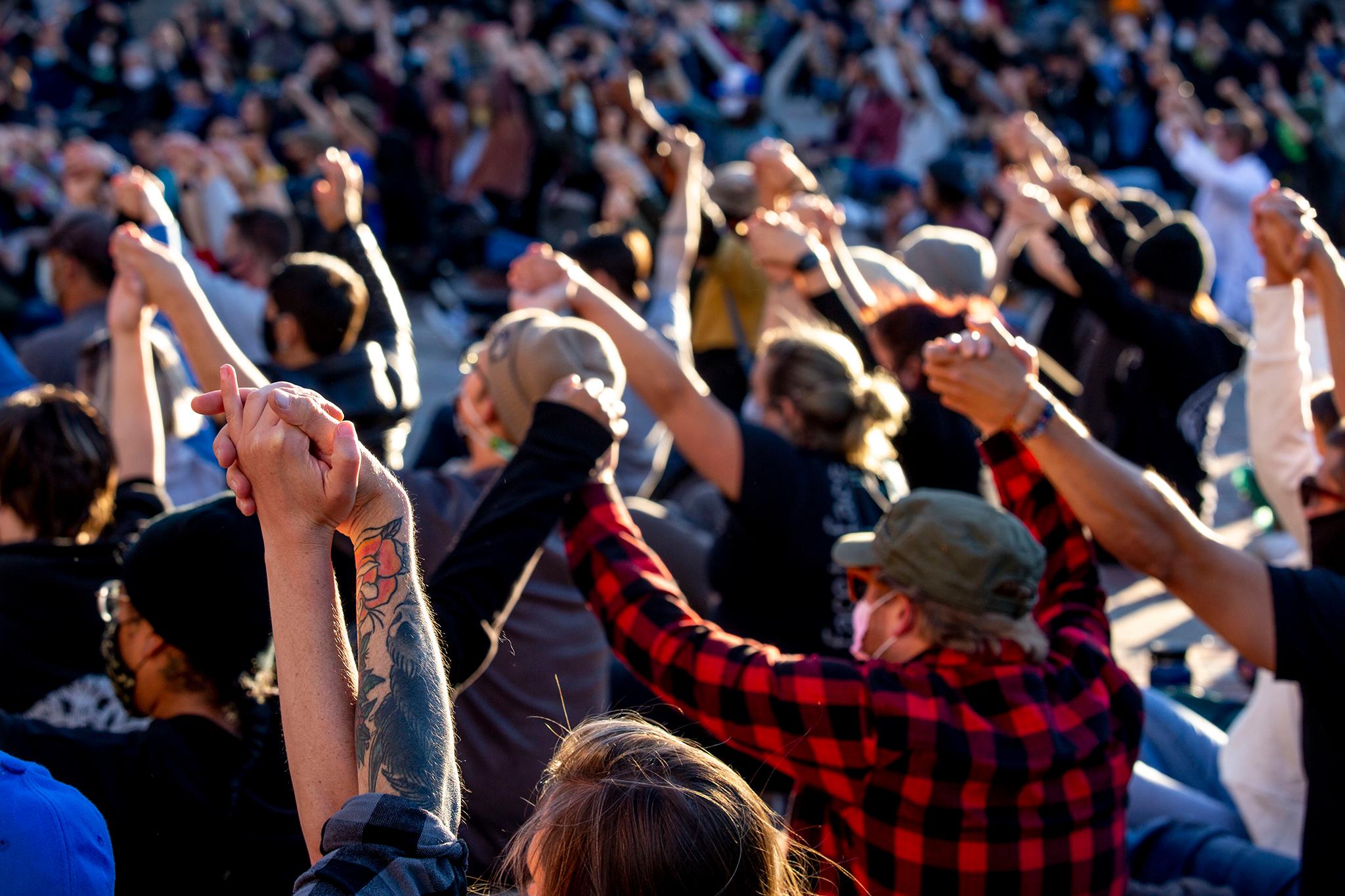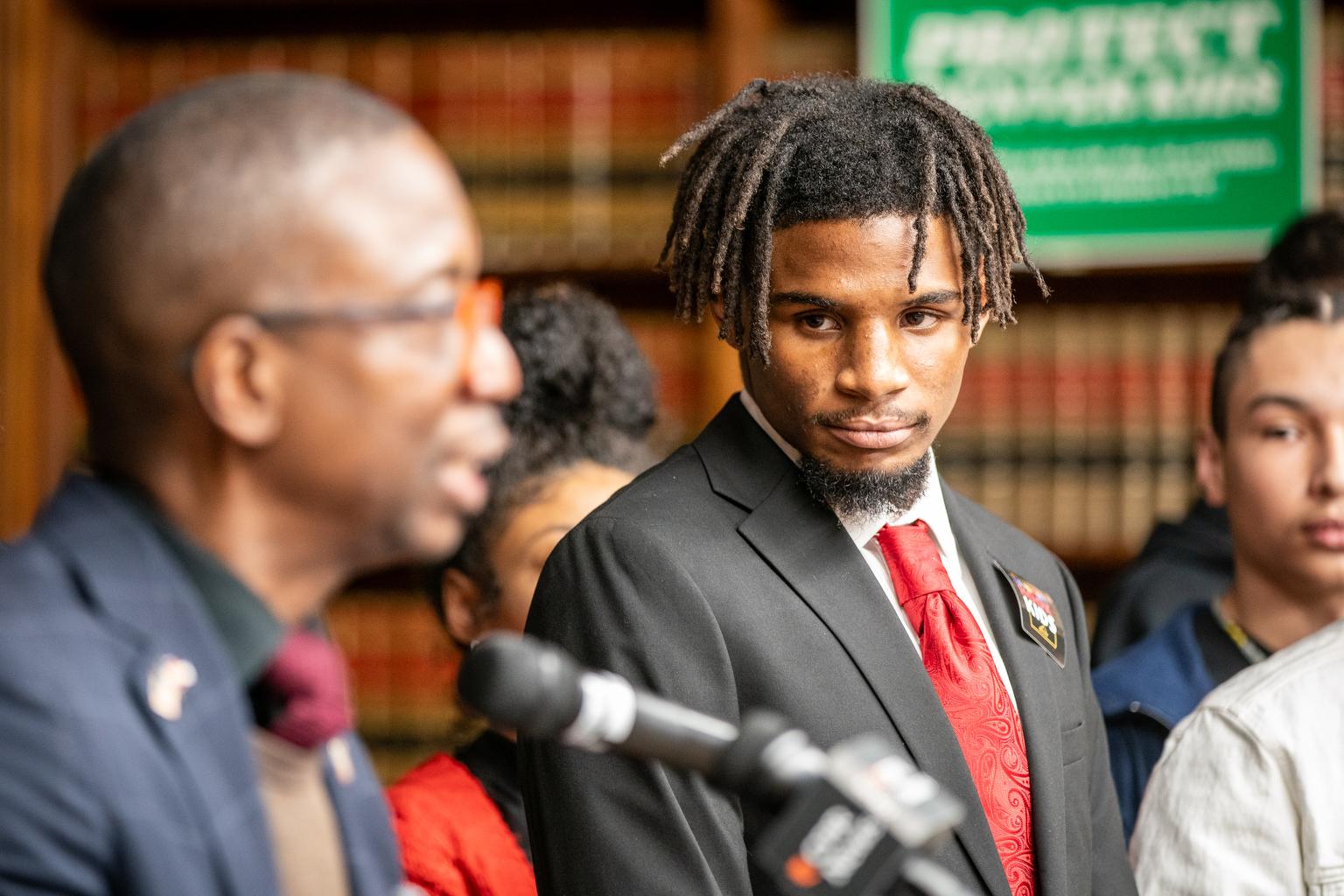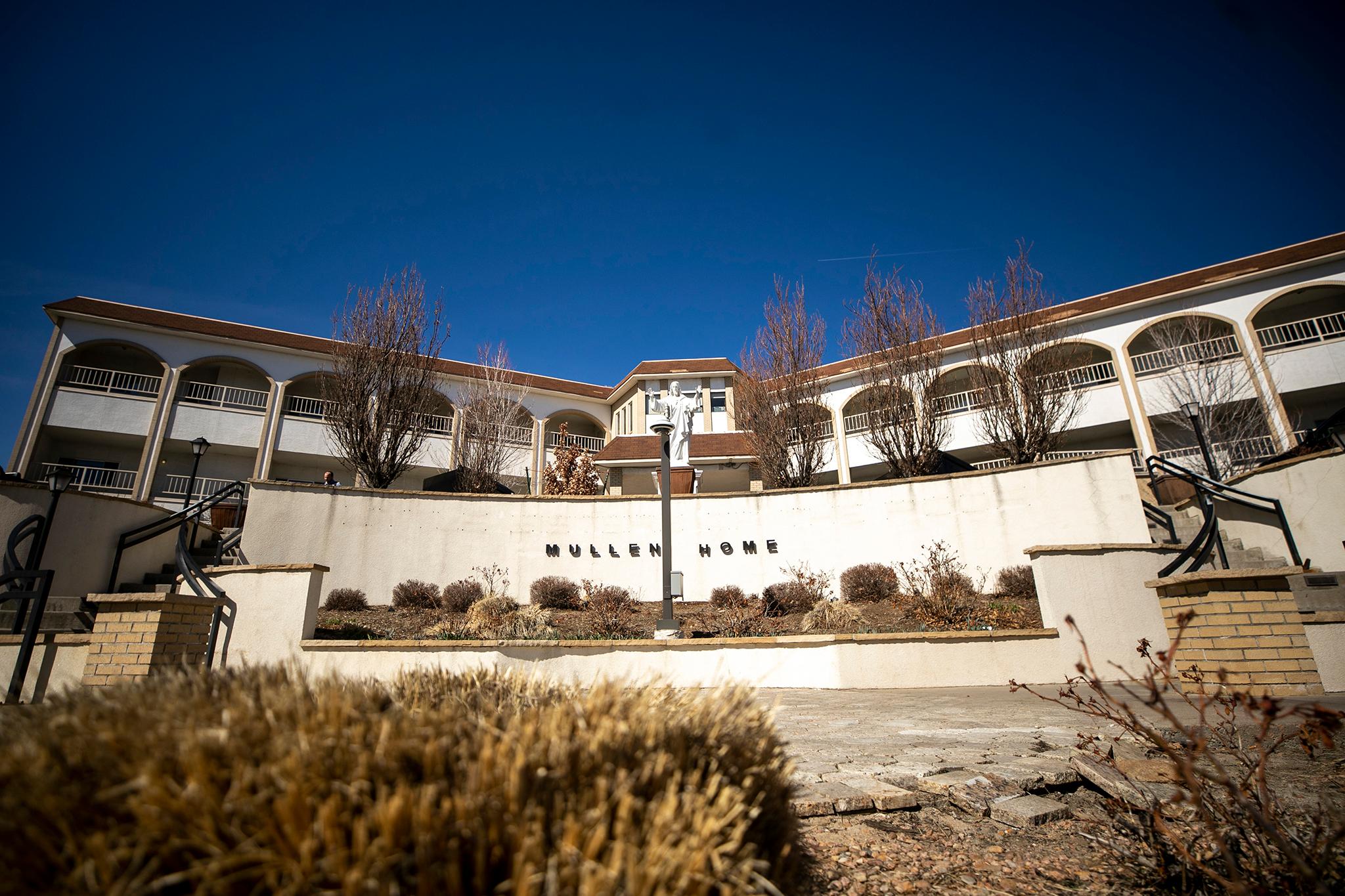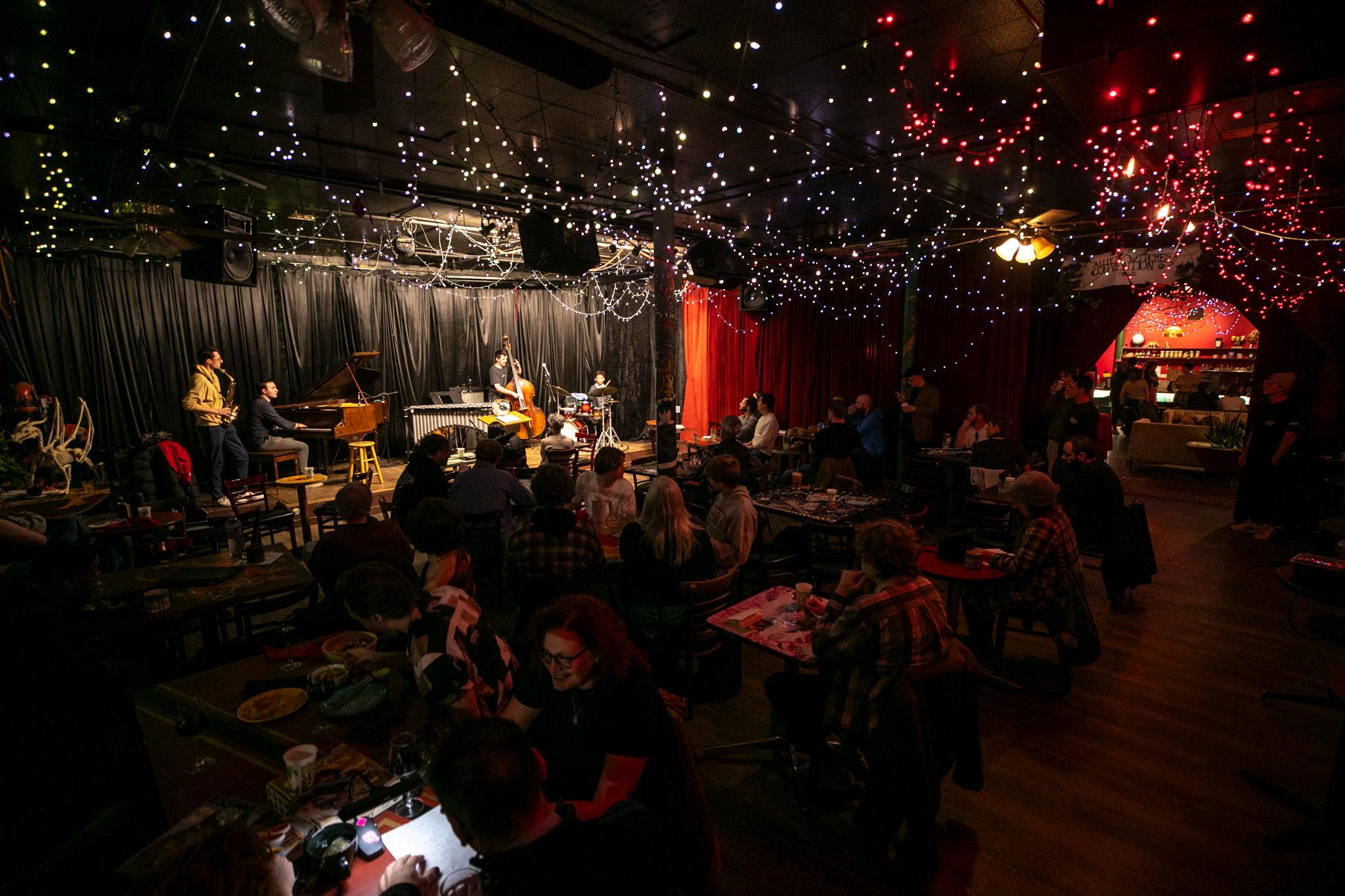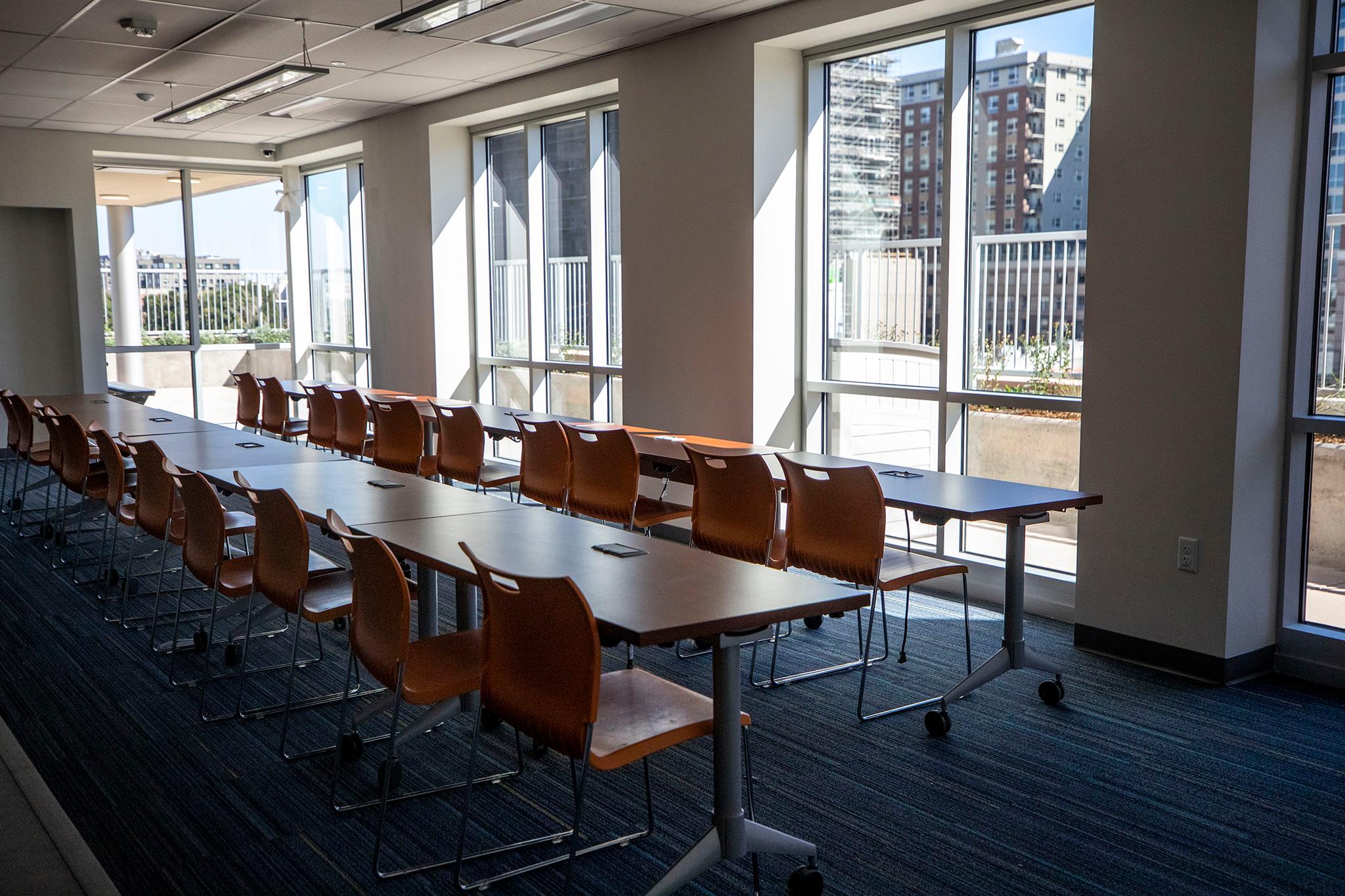A group of a dozen protesters filed a new civil rights lawsuit against the Denver Police Department on Tuesday, adding to a growing pile of litigation the city has faced for its excessive use of force during protests in the wake of George Floyd's murder in 2020.
The 67-page complaint alleges the department used "constitutionally unlawful" tactics to control peaceful demonstrators. According to the lawsuit, officers indiscriminately launched tear gas, pepper balls and flashbang grenades at crowds, violating their first amendment rights.
Department leadership failed to give dispersal orders prior to the uses of force in many cases, the complaint states. High-ranking commanders also did not require officers to complete use of force reports until weeks after the demonstrations.
The claims echo those at the center of a three-week federal trial held in March, when a jury awarded a separate group of protesters $14 million in damages for DPD's constitutional violations. A judge in that case is still weighing whether to issue permanent policy changes within the department.
"The $14 million verdict did not seem to have any effect on the city's policymakers," said Elizabeth Wang, an attorney with Loevy & Loevy, the firm representing protesters in the case filed on Tuesday. Wang also represented several of the plaintiffs during the March trial.
"We're looking for the city to recognize its mistakes and it hasn't," Wang said.
The city has argued officers' actions were necessary due to the chaotic nature of the protests. Groups of demonstrators at times threw objects at police officers. They also broke windows and sprayed graffiti on businesses and government buildings in the downtown area.
A spokeswoman for the City Attorney's Office declined to comment on the pending litigation.
Following the March verdict, the attorney's office said it would continue to review how law enforcement agencies respond to protests. The statement did acknowledge that officers made mistakes in certain incidents.
"We continue to evaluate our policies and training to ensure we are using best practices identified by law enforcement throughout the country to better protect peaceful protestors while addressing those who are only there to engage in violence," the statement said.
DPD has implemented changes to the way it responds to protests since before any litigation, according to a department spokesperson. Those changes include eliminating the use of 40 mm less-lethal equipment during protests and enhanced training.
The latest case brought by protesters cites at least 12 incidents of alleged excessive force that took place between May 30 and June 5, 2020.
In one, officers from multiple metro-Denver departments under DPD command "largely trapped" a group of protesters that marched on Colfax Avenue near the Cathedral Basilica of the Immaculate Conception. Officers used separate skirmish lines to block protesters from the east and west sides, according to the complaint.
Without warning or orders, officers then shot tear gas, flashbang grenades and pepper balls into the crowd from both directions, the lawsuit states.
In an attempt to escape, Mariah Wood, a plaintiff, tried to climb the Basilica's wrought-iron fence. At the top, Wood's shoelace got caught on one of the fence's metal spikes. As she tried to get down, DPD officers shot her with pepper balls "several times."
"At no time did Wood throw anything, commit any act of violence or property destruction, or commit any act that would have justified the use of force," the complaint states.
In another, Mark Rosenthal, a local property manager, stood at the edge of Civic Center Park near Broadway when DPD officers pulled up in a vehicle and began shooting at protesters without warning, according to the complaint.
Rosenthal was shot several times in the torso and head, leaving a bloody gash in his forehead. He had to go to the hospital to get stitches, the suit explains.
Other plaintiffs sustained bruises, skin burns and concussions from their interactions with police. Many are still dealing with post traumatic stress, according to the complaint.
Protesters are seeking monetary damages for their injuries in the case. If the case goes to trial, which will take months to schedule, a judge could order policy change in the department.
The case could also be settled before heading to trial. In February, Denver City Council unanimously approved settlements with two protesters without going to trial. Denver has spent more than $1.3 million settling claims to date.

